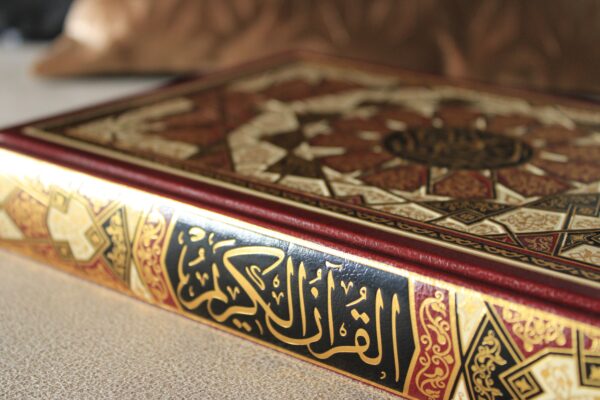There are many differences between Islamic law and ordinary law – but how well versed are we in knowing the differences?
There are many differences between Islamic law and ordinary law – but how well versed are we in knowing the differences?
Laws are rules that regulate various activities, whether pertaining to human beings or others, such as animals and the environment. They provide a well-organized system, ensuring the smooth operation of day-to-day activities and making them an essential part of human civilization.
The term ‘law’ has its origins in the old Teutonic root, denoting something that lies fixed. In its initial stages, the law was relatively weak, with few rules, reflecting the simplicity of the social structure at that time.
However, as society developed and its structure became more complex, the law began to evolve to meet the changing needs of the time. This suggests that society plays a pivotal role in shaping the law to fulfil its own requirements, providing for a comfortable life.
Scholars have traced the origin of law to the emergence of family and tribe, where the commands of the family chief constituted law for its members, and similarly, the commands of the tribal chief served as the law for its members. This development of law paralleled the expansion of families and tribes, leading to the concept of the state.
As these social structures grew, the concept of the state emerged, which regulated a larger number of families and tribes with a broader perspective, aiming to establish a harmonious and integral state.
Law Stands For…
Many scholars and authorities have defined the law in different ways, giving us a common picture and idea about the concept and functions of law.
Woodrow Wilson defined law as the portion of that established thought and habit which has gained distinct and formal recognition in the sphere of uniform rules backed by the authority and power of the government. John Austin defined law as the command of a sovereign who receives habitual obedience from the people living within his jurisdiction.
Other major definitions include, 1) It is the discipline and profession concerned with the customs, practices, and rules of conduct of a community, 2) It is the rules and standards that administer all aspects of society, and 3) It is the whole system of rules that everyone in a country or society must obey.
Law in Islamic Concept
The above-mentioned represents the general concept of law. However, the Islamic perspective on law differs significantly.
In the Islamic legal tradition, the term Al-Shari’a, meaning ‘the way,’ is employed to articulate the law. It is the path established by Allah in Islam to guide His servants in matters related to both worship and the responsibilities of life.
This concept encompasses a broad spectrum, including matters of faith and practical aspects, thereby incorporating worship, individual attitudes, conduct, as well as social norms and laws that span political, economic, financial, criminal, and civil domains. This distinction emphasizes the clear difference between the Islamic concept of law and the conventional understanding of law.
In a hadith Prophet Muhammed – peace be upon him – said: “Man’s feet will not move from their place on the Day of Resurrection before he is asked about his life, in what did he let it perish? About his knowledge, what did he do with it? About his wealth, from where did he earn it, and on what did he spend it? About his body, in what did he wear it out?” This indicates the totality of Islamic law. We can summarize it as a guideline for having a good character in life.
Differences Between Ordinary Law and Islamic Law
There are many differences between Islamic law and ordinary law. It can be summed up as follows.
Islamic law is divine in nature, with its primary source being the will of God, which is absolute and unchangeable. Allah revealed these laws to His beloved Prophet Muhammad (pbuh). The entire framework of Islamic law was disclosed within a concise period, spanning the duration from the conferment of prophethood to the demise of the Prophet, totaling twenty-three years. In contrast, ordinary laws are human-made.
Ordinary laws have been designed for a specific community, region, state, or nation. Those laws were relevant and applicable to that area only, i.e. it hasn’t a universal character. But Islamic laws have been designed for the entire humanity, including the Arabs, to whom the verses of the Quran were revealed, as well as non-Arabs, and the people of the East as well as of the West. It means Islamic laws have formed with a universal character.
Islamic law is codified and designed within a special framework. It contains numerous rules and fundamental principles for legislation. It cannot change according to an individual or society. If a scholar legislates a law for a modern problem not found in its present form at the time of earlier legislation, he has to consider all these rules and principles. This is to protect the divine character of Islamic law.
It is true that ordinary laws also have some rules and principles to be followed at the time of legislation. But even these rules and principles can be changed according to the will of legislative authority. So, Islamic law is fundamentally protected from affecting the will of people.
The perfection of Islamic law is one of the major points of difference. It means Islamic law contains principles and doctrines required by law and it can guide us in each aspect of life.
It is the reason behind the demonstration that Islamic law cannot be identified as law in proper sense; rather it is an ethical or moral system. Here the completeness and comprehensiveness of Islamic law are very clear.
References
K, Pradeep Kumar, Political Science, Malappuram, University of Calicut, 201.
‘Oudah, Abdul Qadir (S. Zakir Aihaz, translator), Criminal law of Islam, Delhi, International Islamic Publishers.
Hornby, AS, Oxford Advanced Learners Dictionary, Oxford, Oxford University Press, 2005.





